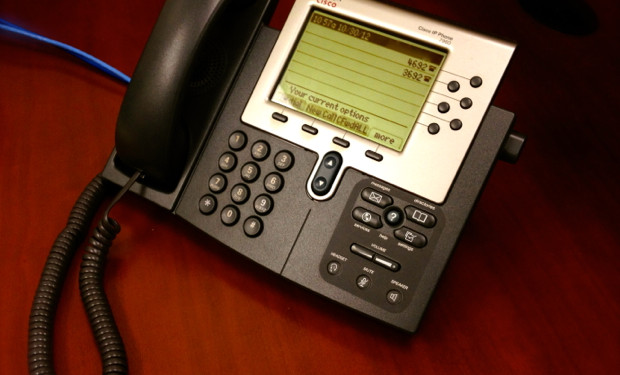Can Phone Calls Open Non-Residents to Jurisdiction in North Carolina?
Imagine you are interested in selling your business, but you have yet to advertise or solicit the sale. A resident of another state contacts you and wants to purchase your business. Though your business and its operations are located in the state in which you live, the out-of-stater proposes to buy your business. The deal is never completed and the potential buyer sues you in his home state. But you have never conducted any business there or even visited the buyer’s state. Would it be legal to allow the plaintiff-buyer to haul you into court in his home state to face such a lawsuit? This issue was recently faced by the North Carolina Court of Appeals.
In June 2012, the North Carolina Court of Appeals issued Miller v. Szilagyi. Miller, the North Carolina plaintiff, entered into an original agreement in 2006 with the Thompsons to purchase several healthcare related businesses. These businesses were owned by the Thompsons, incorporated under Florida law, were headed and operated in Florida, and only did business in Florida. Plaintiff paid $360,000 under the agreement, $50,000 of which was non-refundable. After the deal fell through, Miller did not receive the $310,000 refundable portion of his payment. In 2008, a new deal was reached between the Thompsons and a company with whom Miller worked. Still wanting to secure the payment he felt he was owed, Miller instituted an action in North Carolina state court against the Thompsons. The Thompsons filed a 12(b)(2) motion to dismiss for lack of personal jurisdiction. The trial court granted the Thompsons’ motion to dismiss, noting that there were not sufficient minimum contacts to establish jurisdiction. Miller appealed, arguing that the alleged contract between the parties and the Thompsons’ phone and email contact were enough to subject the Thompsons to personal jurisdiction in North Carolina.
First, the North Carolina Court of Appeals recognized that a contract between a North Carolina resident and an out-of-state person did not automatically create the minimum contacts necessary to subject the out-of-state person to lawsuits in North Carolina. The Thompsons did not solicit in North Carolina for the sale of their business, and had agreed with Miller to perform the entirety of their agreement with Miller in Florida. The Court of Appeals found this was insufficient to create the necessary contacts to give North Carolina jurisdiction over the Thompsons.
Second, the Court looked to see whether the Thompsons’ phone calls and emails were enough to create the necessary minimum contacts. The Court acknowledged that similar to contracts, phone calls to and from a particular state do not automatically create the necessary contacts with a state to establish that state’s jurisdiction over the caller. However, the plaintiff argued that a recent North Carolina Supreme Court ruling, Brown v. Ellis, held that jurisdiction may be established when that defendant had called or emailed a resident of the state.
The Court dismissed Miller’s argument, and distinguished Brown from the case before the Court. Brown was an alienation of affection case in which the defendant lived in California, but worked for the same company as the plaintiff’s wife. On a daily basis, the defendant spoke on the phone with and emailed plaintiff’s wife. The two also discussed their romantic relationship, including planning trips together under the guise of business meetings. The North Carolina Supreme Court believed these communications were enough to establish personal jurisdiction over the defendant, especially since they were used to set up romantic meetings between the two. Thus, the defendant in Brown purposefully availed himself of the laws of North Carolina.
The Court of Appeals found a significant lack in the amount of communication in the Miller case. The Court held that Miller had failed to show how any of the communication between the Thompsons and himself amounted to the defendants purposefully availing themselves of North Carolina law. The Thompsons could not have anticipated being called into a North Carolina court to face a lawsuit concerning their business, which was located entirely in Florida. According to the Court, Miller also did not show that any of the communications between himself and the Thompsons related specifically to the $310,000 Miller sought in relief. The Court affirmed the trial court’s granting of the 12(b)(2) motion to dismiss for lack of personal jurisdiction.
The Miller case shows that communications into another state alone may not subject you to jurisdiction in that state. There still must be “a purposeful availment by the defendant of the privilege of conducting activities within the forum state.” The issue of whether non-face-to-face communications can subject one to jurisdiction elsewhere is a burgeoning issue in the law. As so much of the daily activities of individuals and companies is conducted over the phone and Internet, more and more cases like Miller will emerge, potentially changing the civil procedure landscape.

